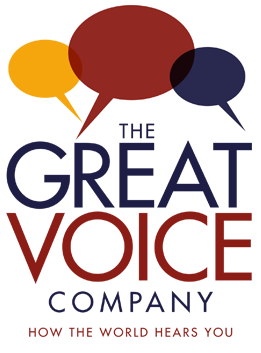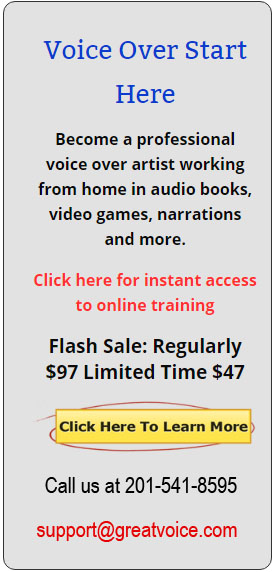In voice over nothing happens until you create your first professionally produced demo.
Oh sure, there are examples where people book their first job through a referral or a fluke audition but these are few and far between.
A professionally produced demo is a vital piece of your success, just as a carpenter needs their box of tools and a hairdresser needs their scissors.
But all too often people do themselves a disservice by trying to cut corners and making some common mistakes which you can easily avoid.
Here are the Top 3 Voice Over Demo Mistakes
- Trying to be all things to all people
There are 14 niche markets and you should pick one or two that are the best for your voice type and life skills you bring to the table. People prefer specialists and something made especially for them, so lead with your strongest suit. If you have been well trained and you’ve developed your voice acting skills, a commercial demo is a great starting point, but don’t put other genres like audio books and corporate narrations on the same demo. They deserve their own demo because they’ll be going to a different set of potential voice buyers. - Trying to do it yourself
If you have home audio gear its tempting to try and produce your own demo. I don’trecommendthis.Its very difficult to act and direct at the same time and almost impossible for a beginner to be objective about the sound of their voice. Its best to wait until you have the funds to invest in a professionally produced and directed demo like you get in our Career Launcher program. I just redid my demos and even after all these years, I don’t produce or direct my own demos. I want to enjoy being a talent without worrying about the other details. - Not recording in the best studio you can find
Some people try to save money by recording in a friend’s home studio. We’ve found that the results they get are often not good. Make sure you record your demo in a professional studio that specializes in spoken word and not music. Ask if they have ‘phone patch’ so your coach can direct you by phone. You’ll hear your coach in your headphones as you record. Some music studios have voice over recording experience but not all of them and they don’t have the right microphones, sound isolation booth or audio engineering expertise you need. Before you book the studio, ask if they regularly record voice overs for corporate, ad agency or audio book clients and ask to hear samples of their work.
There are many ways you can get that all important first demo done, including joining our Career Launcher program at The Great Voice Company where we prepare you in private coaching sessions and at our Voice Over Bootcamp Recording Studio Immersion Experience (next one Dec. 6-8 in Clearwater, Fl.
We’re almost sold out but we might have a few seats left. Contact info@greatvoice.com or 800-333-8108)
Want to use this article on your website or your own ezine?
You may absolutely share this article with people you think may enjoy it. When doing so, please forward it in its entirety and include the following:
Susan Berkley is a top voice over artist
and founder of The Great Voice Company, a company devoted to teaching great voices around the world how to become successful voice over actors.

